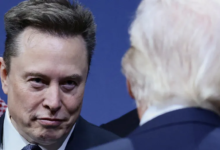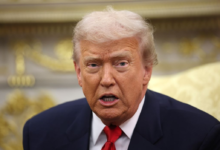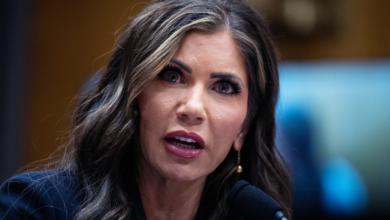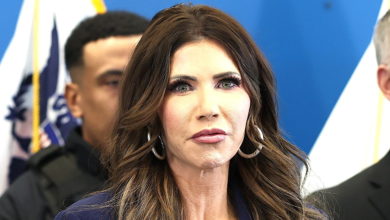Bombshell Analysis Questions Depth of Trump’s ‘Quid Pro Quo’ Donor Deals
Good things keep happening to those who donate millions to the president.
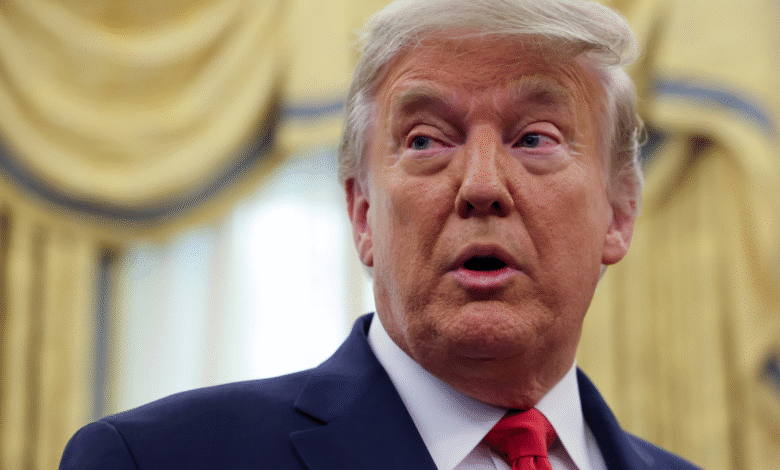
An analysis has revealed how President Donald Trump’s wealthy donors benefited from his return to the White House.
The Financial Times concluded that dozens of generous donors received presidential pardons, dropped investigations, and made successful policy decisions.
The prestigious newspaper commented on its findings: “The scale of the positive benefits for donors raises questions about the existence of a culture of tit-for-tat within the administration.” However, it also highlighted the lack of evidence of illegal behavior.
Among the wealthy donors to the “Make America Great Again 2.0” campaign are the Winklevoss twins, Tyler and Cameron. The brothers, owners of the cryptocurrency exchange Gemini, have donated a total of $3 million to Trump-backed political action committees, including $1 million in January.

The Financial Times reported that the Winklevoss family received good news in February, a month after Trump’s inauguration, when the Securities and Exchange Commission closed a long-running investigation into their stock market.
Cameron, 44, welcomed the dismissal of the investigation in a lengthy message to X, writing, “We urge you to continue reforming our government and leading the fight for dignity.”
The White House did not respond to a request for comment from The Daily Beast, but denied any involvement by the president in consumer payment schemes in a statement provided to the Financial Times.

White House spokeswoman Abigail Jackson said, “All allegations of preferential treatment are false and without any basis in fact; the Trump administration and the president make their decisions solely in the interest of the American people.”
Trump has repeatedly been accused of giving preferential treatment to donors, but he is not the only president to face such allegations. As reported by the Financial Times, First Solar had already donated $1.5 million to Joe Biden’s 2020 campaign. The company received significant green energy subsidies as part of the groundbreaking Inflation Reduction Act.
However, allegations of “quid pro quo” have increased during Trump’s second term, particularly due to his public solicitation and acceptance of gifts, which experts describe as a break with presidential tradition. The White House has come under increased scrutiny since the scandal surrounding Tom Homan, a border agent filmed accepting $50,000 in cash from undercover FBI agents.
Calls for “quid pro quo” also erupted in August after the Bureau of Prisons violated its own rules by transferring Ghislaine Maxwell, a sex trafficker and longtime Trump friend, to a maximum-security prison camp where inmates live in dormitories, not cells. Maxwell’s controversial transfer came the same week she met with Todd Blanch, the Justice Department’s second-in-command, for two days.

One of the most damning cases of donors benefiting from a Trump donation occurred in May, when the president pardoned Paul Walczak, a tax evader who had stolen from his employees to buy a yacht and other luxury items. This pardon came a month after his mother, Elizabeth Fago, donated $1 million to Trump’s company, MAGA Inc., and attended a dinner at Mar-a-Lago.
Other recipients analyzed by the Financial Times included tobacco company RAI Services, which donated $10 million to a pro-Trump political action committee in 2024. After Trump returned to power, his administration reversed a Biden-era plan to ban menthol cigarettes and flavored cigars.
UnitedHealthcare Services also benefited from this donation, paying MAGA Inc. $5 million in January. Three months later, the Trump administration approved higher Medicare Advantage rates for 2026 than originally proposed, a price increase that the Financial Times reported would boost profits for the nation’s largest insurer.
Another healthcare company, Extremity Care, reportedly donated a total of $10 million to MAGA Inc., along with its owners. Six weeks later, the Trump administration delayed a policy change that would have limited Medicare coverage for the company’s “expensive, ultra-thin bandages made from human tissue waste,” according to the Financial Times.

Critics say Trump, 79, has acted differently from his predecessors, not even ignoring the possibility of buying privileges.
Bob Bauer, former White House counsel under Barack Obama, told the Financial Times: “Previous administrations have been accused of buying privileges with money. What distinguishes this presidency is the overt transactionalism that characterizes Donald Trump’s style of governance.”


